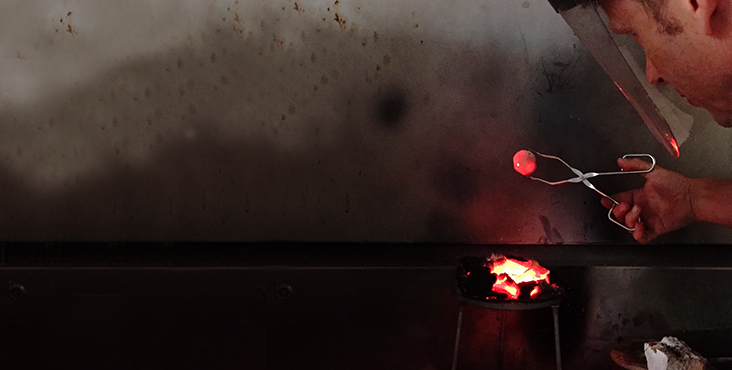21 – 25 August 2017, Woudschouten Hotel & Conference Centre
This edition of the TransPositions Summer School focusses on material culture and the senses. How can we investigate sensory experiences of past material cultures or cultures that are not our own? And how can we reconstruct in our studies the experiential richness of ephemera and material practices “lost in transmission” or only preserved in textual sources? The summer school approaches these questions across different disciplines including art history, archaeology, anthropology, conservation, musicology, performance and media studies, cognitive science, and religion- and science studies.
Today the constitutive and performative nature of material culture has become widely acknowledged and researchers have developed different methodologies and tools to study the complex, dynamic textures and temporalities of material cultures. Scholars have shown, for example, that neither science nor religion can be studied as “immaterial affairs”. Instead, they study the material genesis of immaterial facts and spiritual presence with an integrated and inherently multi-disciplinary approach that does not prioritize mind over matter. At the same time, scholars from and across different disciplines have challenged notions of the senses as discrete and monolithic. Visual anthropologists study sensory perception as situated action that is guided by and sensible to material affordances of the environments; historians of the senses have convincingly shown how sensory notions and experiences change through time; conservators and technical art historians redefined the activity of looking as a learned competency that comes with handling materials and developing sensorial proficiency in assessing their textures and surfaces. These participatory and materially engaged approaches, prompt us to reassess notions of seeing in terms of “sensorial apprenticeship” and “skilled vision”. Moreover, new methods are explored across different disciplines, combining object-based and reconstruction research that train visual acuity and material literacy. In fact, the handling and remaking of cultural artefacts is increasingly understood as a powerful heuristic process. Yet, at the same time, these approaches give rise to ongoing controversies about the nature of material agencies, while the usefulness of embodied, extended and embedded mind theories for the study of past and present material cultures remain open to discussion.
Building on scholarship that brought materials and things to the centre of scholarly attention, we invite participants to contribute to critical interdisciplinary discussions, moving beyond the questions “Why materials?“ or “Why things?“ and exploring how we can become more perceptive to materials and sensible objects, how we can foster material engagements in our fields, and how we—as humanities and social sciences scholars—can apprentice ourselves (and our students) in sensory proficiency and skilled material expertise relevant to our research. In particular, the following questions will be addressed:
- How can we investigate sensory experiences of past material cultures or cultures that are not our own?
- How are human bodies involved in practices of making visible and palpable?
- How can we educate our senses? How do we build sensory expertise and material literacy?
- In what ways can performative and experiential methodologies help us to study the historical and cultural contingencies of sensory experiences?
- How can we account for sensual and performative aspects of material culture in our own research output—in text, visual forms or in speech?
Invited keynote speakers
Ulinka Rublack
(Faculty of History, Cambridge University)
Lambros Malafouris
(Kebble College and Institute of Archaeology, Oxford University)
Rachel Prentice
(Dept. of Science and Technology Studies, Cornell University)
Shigehisa Kuriyama
(Dept. of East Asian Languages and Civilizations, Harvard University)


